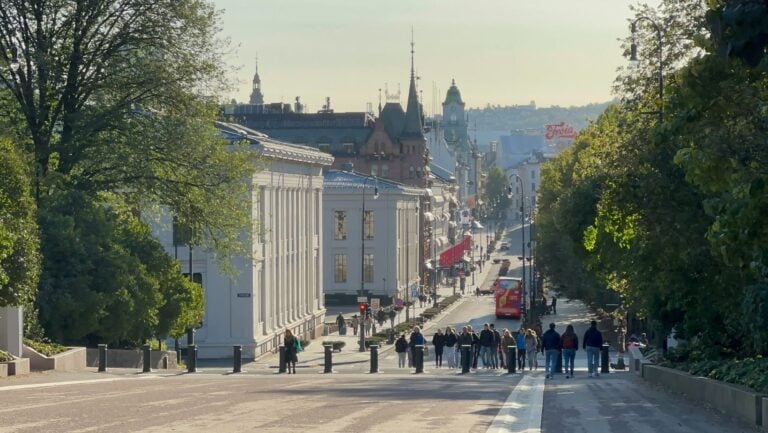In the heart of Norway, a debate is brewing over the potential for many more of Oslo’s businesses to open their doors on Sundays. Here’s what might happen, and why.
For decades, the Conservative Party (Høyre) has been advocating for the liberalisation of trading hours in the capital. They are now making a renewed push to make the city livelier on Sundays by allowing more trading.

Norway’s Sunday trading laws for shops are strict, with only convenience stores and small supermarkets able to open. To get around this, many supermarkets in Norway run a smaller annex that is only open on Sundays.
Aside from Sundays in the run-up to December in which shops do open in some places, most of Norway’s businesses are closed on Sundays. Bars, restaurants, and galleries are allowed to remain open, though.
Anita Leirvik North, representing Høyre and serving as the City’s Culture and Business Affairs Commissioner, has been vocal about her vision for the city of Oslo.
“We want to make Oslo even more vibrant,” she stated to NRK, emphasizing the inclusion of restaurants, cultural life, and retail as part of this initiative.
The proposal, however, is not for the entirety of Oslo but specifically targeted at certain central areas, aiming to transform them into bustling hubs of activity even on Sundays.
Oslo as a Tourist Destination
Central to this initiative is the requirement for Oslo to be designated as a ‘typical tourist destination,’ a status that would legally permit more Sunday trading. Currently, one in three Norwegian municipalities enjoys this designation, but Oslo remains notably absent from the list.

Despite the city’s undeniable draw for tourists, especially evident in summer visits to popular spots like Vigeland Park and Karl Johans gate, it has yet to meet the official criteria defined by the State Governor (Statsforvalteren).
This criteria mandates that an area can only be considered a ‘typical tourist destination’ if its sales are primarily to tourists during the relevant periods.
Previously, attempts by Høyre, during their tenure in the city government, to secure this designation were met with rejection. Nonetheless, they are undeterred, with North expressing surprise at the reluctance to recognize Oslo as a tourist city.
The city council is currently preparing a new application to the State Governor, with discussions underway to precisely define the geographical areas of central Oslo that would be eligible for an exception.
The push for Sunday trading extends beyond mere commercial interests, touching upon the broader concept of tourism that includes locals, regional visitors, and international guests alike.
North points to the increased awareness of local tourism and staycations, especially in the wake of the pandemic, as a justification for reconsidering Sunday trading laws.
Opposition to Sunday Trading in Oslo
However, the proposal has drawn mixed reactions from the local business community.
According to Bjørn Næss, CEO of the Oslo Trade Association (OHF), opinions vary widely among members. While merchants in tourist-heavy areas of central Oslo are largely supportive, others express concerns over the economic viability of extending trading hours without a corresponding increase in sales.
The initiative faces opposition from the labour sector, particularly the trade union Handel og Kontor, which argues that Sunday trading could disrupt the work-life balance of retail employees.
Despite this, North highlights the potential benefits for students in Oslo, a city known for its substantial student population, suggesting that Sunday openings could offer them valuable part-time employment opportunities.
What Happens Next?
As the debate continues, Oslo’s city council must first approve any application for tourist-designated Sunday trading before it can be forwarded to the State Governor for consideration.
